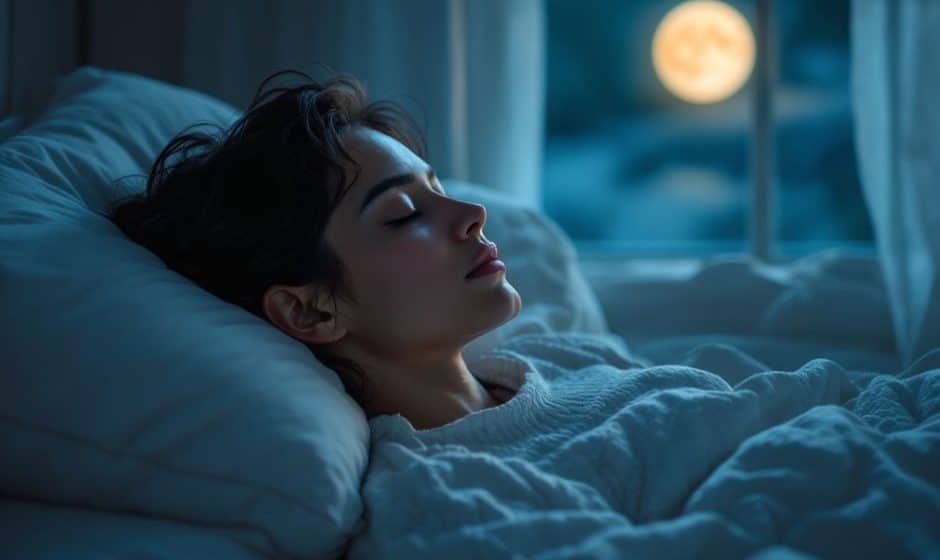Ever find yourself tossing and turning at night, replaying your entire day over and over like a bad rerun? You’re in bed, it’s quiet, and yet sleep feels like that elusive dream just out of reach. If you’ve ever felt this way, you’re not alone—many of us have been desperate for insomnia relief at some point. But have you ever thought that the key to unlocking blissful sleep might lie in hormone regulation? Let’s dive deeper into this connection and explore how you can nurture your hormones to find that much-needed respite.
Understanding Insomnia and Hormone Regulation
First things first, let’s unpack this: what exactly is insomnia? It’s that miserable feeling of being awake when you should be in dreamland. Insomnia can be short-lived, lasting a few nights—or it could drag on for months. And while stress and lifestyle choices often get the blame, there’s a deeper player at work here: your hormones.
Hormones are like little messengers that run around your body telling it what to do—even how to sleep. And when they’re out of whack, so is your sleep cycle. This is where hormone regulation comes in. Trust me on this, understanding these messengers and how they govern your sleep can make all the difference in your quest for insomnia relief.
The Hormones at Play: Melatonin and Cortisol
Let’s talk melatonin—the hormone that essentially whispers “Time for bed!” to your brain. It’s produced in the pineal gland and starts to rise as the sun sets. So, sinking into natural darkness can cue this trusty hormone to get to work. Too much blue light from screens, though? That can totally throw a wrench in melatonin’s plans.
Now, shift gears to cortisol—often called the “stress hormone.” During the day, it helps us stay alert and focused. Ideally, cortisol should taper off in the evening as melatonin takes the spotlight. But if you’re stressing, cortisol keeps its annoying reign. This disruption in hormone regulation is often a major stumbling block for those fighting insomnia.
Improving Sleep with Healthy Habits
So, what can we do about all of this? We could dive into a gazillion tips, but let’s anchor down on core habits that can gently coax your hormones back into harmony.

Embrace Natural Light
Wake up and try to get some early morning sunlight. This simple act helps keep your circadian rhythm—your body’s internal clock—on track. A short walk outside or even sitting by a window can help regulate cortisol, boosting wakefulness at the right time.
Cultivate a Sleep Haven
Craft a sleep-friendly space. Limit blue light exposure from TVs, phones, and computers at least an hour before bed. Switch over to warm lights instead. The idea? Invite melatonin, allow it to dance smoothly to its healthy rhythm.
The Power of Relaxation Techniques
Activities like deep breathing, meditation, or even a warm bath can lower cortisol levels. It’s all about creating a familiar routine signaling your brain—and hormones—that it’s bedtime.
Nutrition and Its Impact on Hormone Regulation
Remember, what you eat can play a big role, too. Let’s chew on some diet tips that assist in hormone regulation:
Sip on Herbal Tea
Tea lovers, this one’s for you! Chamomile or valerian root tea before bed not only feels soothing but will also support that melatonin magic.
Balanced Caffeine Intake
Caffeine is a sneaky culprit, so keep that cozy cup o’ joe to the earlier part of the day—or try low-caffeine alternatives if you’re sensitive.

Essential Minerals and Vitamins
Magnesium, zinc, and other vital nutrients can boost your hormone health. Natural sources like pumpkin seeds, spinach, almonds, and fortified cereals are tried-and-true ways to support these vitamins.
How Exercise Fits Into the Equation
Yeah, yeah, you probably saw this coming—exercise! But this isn’t your typical “go hard or go home” speech. Finding a routine that fits your lifestyle is what’s most important here.
Morning Workouts
Morning workouts are pivotal. They help break down stress, thus reducing cortisol levels—and energize routine hormone regulation.
Evening Yoga
Yoga in the evening can be the slow dance after a long day, easing the mind and body into restfulness. Here, again, it’s about signaling to your body that it’s time to power down and reset.
Sleep Supplements: When and What to Consider
When lifestyle changes aren’t enough, some might consider supplements for a boost in hormone regulation.
Natural Melatonin Supplements

For an extra nudge, a natural melatonin supplement can sometimes help. But, fair warning, it’s not a cure-all and should be used wisely, ideally with advice from a healthcare professional.
Herbal Alternatives
Passionflower, valerian root, or ashwagandha are all-star players in the world of herbal insomnia relief who can aid melatonin in its sleep-inducing magic.
Tracking and Adjusting
Testing and adjusting your routine is crucial. Keep a sleep diary noting start times, how long it takes to fall asleep, how refreshed you feel, etc. This information acts the way a map might on a road trip, helping track your journey to healthy sleep patterns.
Troubleshoot Common Sleep Disruptors
Sleep disruptions are sneaky. Be it late-night snacking or that cup of coffee too close to evening, note whenever something seems amiss. It’s easier to solve when you’ve decoded your personal triggers.
When to Seek Professional Help
Finally, if you’ve given all this a shot for a good while and insomnia still keeps punching your sleep in the throat, it’s okay to lean on a professional. Serious bedtime battles might need the insights and guidance of a healthcare provider.
Wrapping It All Up
There’s a comfort in knowing that insomnia doesn’t have the last word on our rest. By focusing on hormone regulation and nurturing healthier habits, you’re opening the door to restorative, nourishing sleep. So go ahead—fall back in love with bedtime. Here’s to fewer tossed sheets and more blissful zzz’s. You’ve totally got this.
Frequently Asked Questions
What causes a hormonal imbalance?
A hormonal imbalance can be caused by natural changes or stages in your life, including puberty, pregnancy, perimenopause, and menopause. Additionally, hormone levels can dramatically decrease after a partial or full hysterectomy. Other causes include tumors, adenomas, and autoimmune diseases that affect the endocrine glands[1][5][3).
What are the signs and symptoms of a hormonal imbalance?
The signs and symptoms of a hormonal imbalance can vary widely but may include irritability and fatigue, mood swings and depression, skin dryness and loss of elasticity, water retention and weight gain, osteoporosis and joint pain, less interest in sex, insomnia and other sleep disorders, and memory issues and difficulty concentrating[1][5][3).
How does hormone replacement therapy help with hormonal imbalances?
Hormone replacement therapy helps by restoring stable hormone levels in the body. This can lead to better sleep, increased energy, enhanced memory, improved concentration, elevated mood with fewer mood swings, smoother and more hydrated skin, increased interest in sex, better weight regulation, and joint and bone protection[1][3).
What types of hormone replacement therapy are available?
There are several types of hormone replacement therapy, including systemic hormone therapy (available in pill form, patches, rings, gel, cream, or spray), low-dose vaginal products (for vaginal and urinary symptoms), and bio-identical hormone replacement therapy (which is structurally identical to human hormones and may have fewer side effects)[1][3).
References



